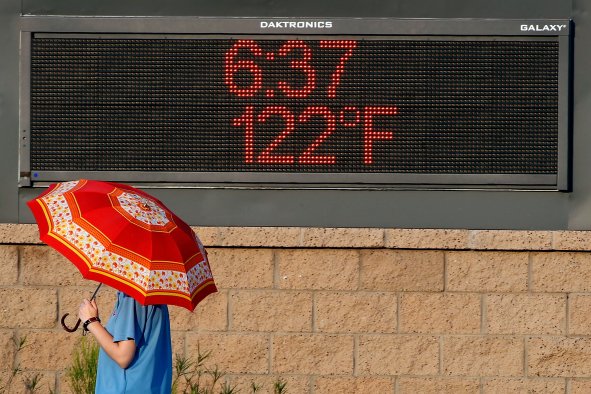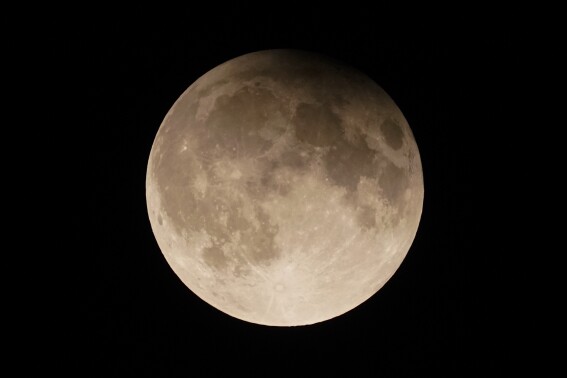Your support helps us to tell the story
Support NowOur mission is to deliver unbiased, fact-based reporting that holds power to account and exposes the truth.
Whether $5 or $50, every contribution counts.
Support us to deliver journalism without an agenda.

Louise Thomas
Editor
A vaccine that protects against measles has been shown to wane very slowly over time but still remains highly effective against the contagious disease, scientists have said.
More than 95% of people who have had two doses of the measles, mumps and rubella vaccine (MMR vaccine) – which was introduced in 1988 – are protected for life, findings published in the journal The Lancet Public Health show.
Data from the UK Health Security Agency (UKSHA) suggests a vast majority of measles cases in England are in unvaccinated children and young people, there has been also been an unexplained rise in infections among those who are double-vaccinated.
A modelling study led by The London School of Hygiene & Tropical Medicine (LSHTM) suggests that the effectiveness of the MMR jab can very gradually decrease over time, by 0.04% each year after the second dose.
Scientists said this could partly explain why people who have been vaccinated are still getting measles.
But they added that the “slight waning” in MMR vaccine immunity is only apparent because uptake is lower than the 95% coverage target set by World Health Organisation (WHO), which is fuelling outbreaks.
Although we have a highly effective vaccine, we need very high coverage to prevent transmission in communities and ensure that cases remain at low levels
Prof Adam KucharskiThe latest UKHSA figures show only 85% of under-fives in England have received two doses of MMR.
Adam Kucharski, professor of infectious disease epidemiology at LSHTM, said: “Measles is an infection which is highly transmissible.
“So although we have a highly effective vaccine, we need very high coverage to prevent transmission in communities and ensure that cases remain at low levels.
“Because we have had this drop-off in coverage in recent years, we have seen outbreaks of measles in England.”
Dr Alexis Robert, research fellow in infectious disease dynamics at LSHTM, added: “Before routine measles vaccination began, England and Wales saw large outbreaks with peaks of 600,000 cases in some years, by contrast from 2010-2024, the most reported cases in any one year was under 3,000.
“It’s important to emphasise that the patterns we see in the data are only there because outbreaks have occurred as a result of declines in vaccine coverage.
“If there were no outbreaks, this small amount of waning would not show up in any data.
“The key issue here is coverage, not the effectiveness of the vaccine.
“The scientific consensus is that measles vaccines are safe and have been highly effective in preventing outbreaks.”
The proportion of measles cases in adults who received two doses of the MMR vaccine in England tripled from 1.9% to 7.2% between 2011 and 2019, figures show.
The MMR vaccine remains the best and safest way to protect against measles and we encourage parents to check their children are up to date
Dr Vanessa SalibaTo find out why, the researchers explored different scenarios using mathematical modelling.
Results showed that slow waning of vaccine immunity best matched the real distribution of cases of measles in double-vaccinated people by age group and over time.
Dr Robert said: “According to the WHO, measles vaccination averted 57 million global deaths between 2000 and 2022.
“While this slow waning of immunity is a problem, it is a completely different order of problem from the deadly epidemics of the past that measles vaccines have prevented.”
Commenting on the research, Dr Vanessa Saliba, consultant epidemiologist at the UKHSA, said: “This paper reinforces that MMR vaccine is highly effective in providing lifelong protection against measles.
“The World Health Organisation is clear that global measles elimination is possible if countries achieve and sustain 95% population uptake with two MMR doses.
“The decline in MMR vaccine uptake seen over the last decade is driving the current increase in measles and the vast majority of cases have been in unvaccinated children under the age of 10.
“In a highly vaccinated population, it is expected that we will see a very small number of measles cases in those fully vaccinated, but with milder symptoms and a much lower chance of passing the infection on to others.
“The MMR vaccine remains the best and safest way to protect against measles and we encourage parents to check their children are up to date.”
Disclaimer: The copyright of this article belongs to the original author. Reposting this article is solely for the purpose of information dissemination and does not constitute any investment advice. If there is any infringement, please contact us immediately. We will make corrections or deletions as necessary. Thank you.



